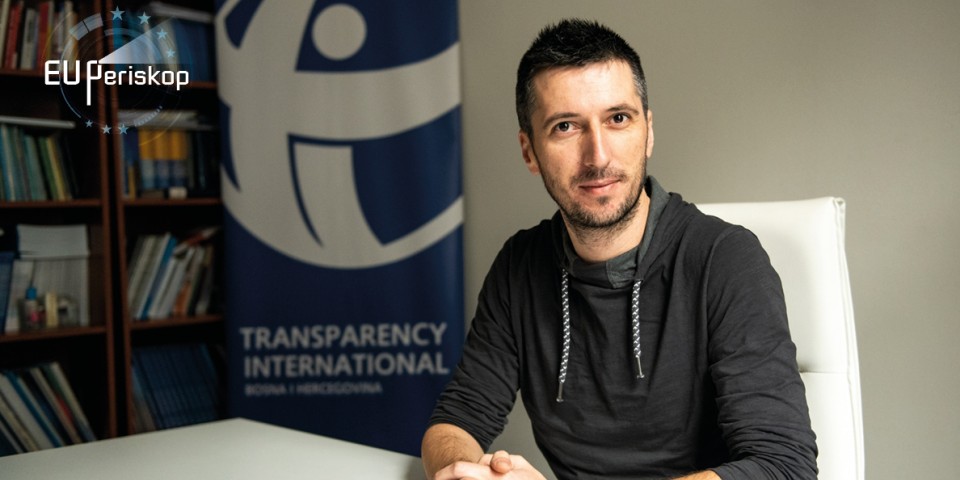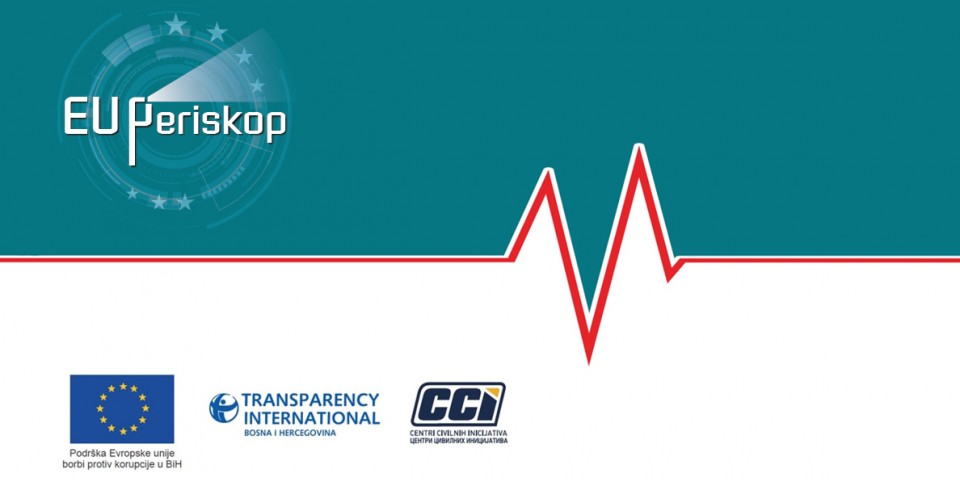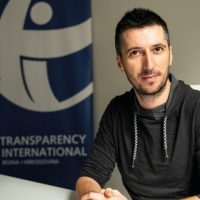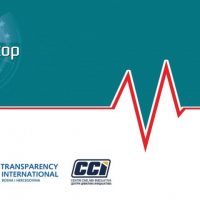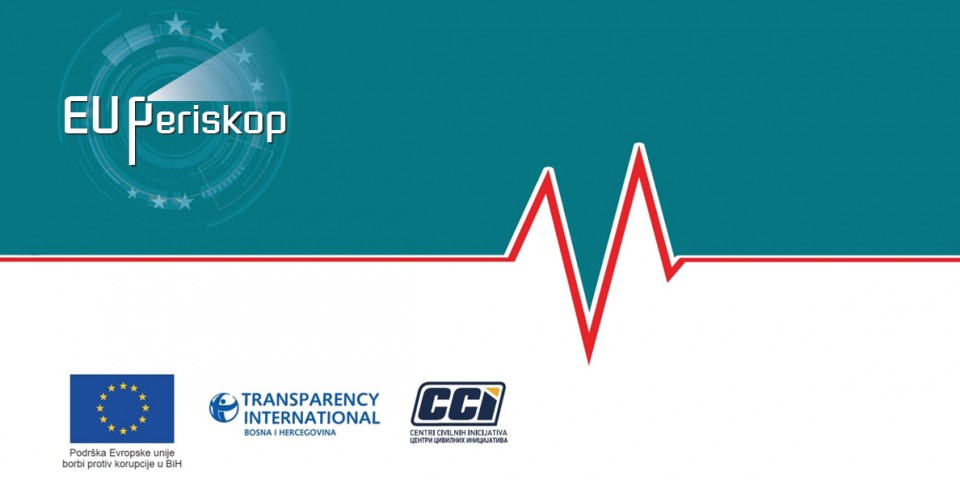
Eradicating Corruption, Curing the Health Sector
Although corruption has become an almost indispensable part of everyday discourse, the very concept of corruption and effective action against this phenomenon remains abstract to most citizens. Bosnia...
Although corruption has become an almost indispensable part of everyday discourse, the very concept of corruption and effective action against this phenomenon remains abstract to most citizens. Bosnia and Herzegovina is a country plagued by widespread and deep-rooted corruption, as confirmed by Transparency International’s Corruption Perceptions Index for many years. Anti-corruption measures, laws, agencies, and working bodies exist and work on systemic solutions to eradicate these practices. However, when it turns out that the sector that needs to provide basic healthcare to citizens is the most infected of all, the question is who will cure healthcare?
Recognising the need to improve the transparency, integrity and accountability of public health institutions in Bosnia and Herzegovina, the European Union has supported the project “Cure the Healthcare” in order to facilitate and improve quality and access to health services. Given the comprehensive and complex nature of the sector, health care faces extremely high risks of corruption, as confirmed by numerous surveys of citizens’ perceptions.
In addition to the corruption most commonly perceived by citizens – proper access to health services – public procurement processes that present a high risk of corruption should not be neglected. These are large amounts, with a high degree of discretion in decision making, as well as a decentralised procurement system. “When it comes to the health sector, we have chosen to focus on five key areas, namely procurement, financial management and transparency, the recruitment process, conflict of interest, and an electronic system for transparent waiting lists for specialist examinations,” says Emsad Dizdarević, Project Coordinator at Transparency International.
The main objective of the project is to contribute to the reduction of corruption in the health sector and to provide better quality services through the active involvement of civil society organisations in the process of policy-making, decision-making and support to healthcare institutions. It is believed that the activities in these areas will improve the fight against corruption, namely the prevention of corruption within the health institutions themselves, which could certainly increase the quality of health care services provided to citizens and reduce corruption.
“We have signed memoranda of cooperation with 15 healthcare facilities. What we must emphasise is that the memorandum was signed on a voluntary basis and that all health care institutions agreed to work on improving their internal policies and preventing corruption in the aforementioned areas. Additionally, over the next year, we plan to provide training and education for employees of health care institutions, ” says Dizdarević.
The prevalence of corruption is reflected in waiting for individual examinations and surgeries for up to a year, even with the most serious diseases. During the project, particular attention is paid to the introduction of transparent waiting lists, which will feature a single institution model. The goal is to showcase good practices; where citizens will have full insight into scheduled check-ups and operations, which reduces corruption and prevents ‘over-the-counter’ scheduling. This positive example will be suggested to other health care institutions.
“There are waiting lists for certain services in the Zenica Cantonal Hospital, and probably in other institutions of this level, especially when it comes to diagnostic services for non-hospitalised patients. So far, we have introduced electronic scheduling for our patients and published the waiting lists on our website so that patients can find information. However, there are still a number of orders through the so-called “order books”. Within the project “Cure the Healthcare” we came up with the idea of trying to create special software through which patients will be ordered in waiting lists. We installed the software in early February and started ordering patients for specific examinations,” says Dr. Kasim Spahić, Assistant Director for Medical Affairs, Zenica Cantonal Hospital.
The ordering goes automatically into the specified calendar, and the patient receives a notification message about the ordering date and what to do. The personal information in the waiting lists is protected in such a way that a code that only the patient knows is issued. “In addition, these patient waiting lists are available on our website. All you have to do is open the link and find yourself. The benefits of this software and this method of ordering are that our work is easier, as is communication with patients. Waiting lists are transparent, accessible to the patient, the possibility of manipulation is reduced, and ultimately patients are satisfied,” concluded Dr. Spahić.
With the ambitious goal of curing the healthcare system, the project seeks to demonstrate good practices and open collaboration between health institutions across Bosnia and Herzegovina to encourage improvements in internal procedures, improve anti-corruption solutions, and enhance the capacity of civil society organisations and the media to combat healthcare corruption. The goal is to prevent the denial of quality healthcare to those who need it most. Because, in this case, corruption is not abstract, corruption in healthcare costs us lives.

